Don King Presents:
Vader vs. Buddha: Deadly Use the Force

'Not since Palpatine pummeled Yoda! [that's right!] Not since Christians murdered Muslims! [yessir!] Not since Romulans rumbled with Vulcans! [praise t'pau!] Not since Eden vs. Apple! [forgive eve!] Not since Saruman sacked Gandalf! [truth!] Not since Magneto muscled Xavier! [x-actly!] Not since Ying yanked Yang! [right! huh?] Not since Apples attacked Oranges! [what he say?] Not since Pepsi clocked Coke! [don's in trouble!] Not since Joey chumped Chandler! [someone cut his mike!] Not since Milli vanquished...'
Matthew Bortolin: Darth Vader vs. The Buddha
from Film Threat
When the characters of the Star Wars series proclaim "May the Force be with you!” to each other, the Force in question is not Buddhism. In fact, Buddhism is never mentioned anywhere in the Star Wars series. Or at least not in an overt manner.
The link between the Buddha and Luke Skywalker and Co. has been made by writer Matthew Bortolin. Indeed, these are twin passions: Bortolin is an ordained member of Thich Nhat Hanh's Order of Interbeing, and has lived in Buddhist monasteries both in the United States and abroad. And a set of Jedi robes hangs in his closet.
Bortolin has outlined the unlikely common ground between these two cultural phenomena in his new book The Dharma of Star Wars. Covering the entire Star Wars odyssey, Bortolin traces elements of Buddhist philosophy and theology in the epic story lines and larger than life characters of the Star Wars films.
Were you initially cognizant of the parallels between Star Wars and Buddhist theology when you first saw the 1977 landmark, or did your connections between faith and film arise over time? And what exactly clued you to the connections?
When
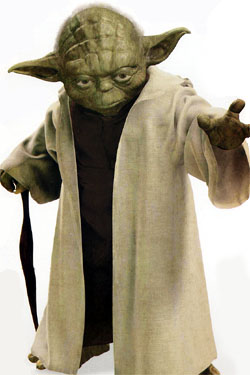 I saw Star Wars in 1977 I didn’t even know what Buddhism was and I probably wouldn’t have cared had someone told me it had parallels with my favorite movie. I was simply captivated by Luke’s quest, Obi-Wan’s wisdom, Vader’s evil and the rest of the crew. Star Wars instantly became part of me, my thoughts, my world-view. I think of it now as my oldest friend. The Empire Strikes Back made the influence of Buddhism on the saga very apparent. [Director] Irvin Kershner said he tried to make Yoda like a Zen master and to imbue the Dagobah scenes with a Zen feel. (By the way, “Dagobah” is a rewording of “dagoba” or Buddhist shrine—just a little geeky trivia for you). Yoda is a good jumping off point for Buddhist themes in Star Wars, but they run much deeper than what that little Jedi Master taught Luke.
I saw Star Wars in 1977 I didn’t even know what Buddhism was and I probably wouldn’t have cared had someone told me it had parallels with my favorite movie. I was simply captivated by Luke’s quest, Obi-Wan’s wisdom, Vader’s evil and the rest of the crew. Star Wars instantly became part of me, my thoughts, my world-view. I think of it now as my oldest friend. The Empire Strikes Back made the influence of Buddhism on the saga very apparent. [Director] Irvin Kershner said he tried to make Yoda like a Zen master and to imbue the Dagobah scenes with a Zen feel. (By the way, “Dagobah” is a rewording of “dagoba” or Buddhist shrine—just a little geeky trivia for you). Yoda is a good jumping off point for Buddhist themes in Star Wars, but they run much deeper than what that little Jedi Master taught Luke. Star Wars fans have more than a little difficulty tolerating the likes of Jar Jar Binks or the Ewoks. What role do these less-than-loved characters serve in the Buddhist understanding of the Star Wars series?
If nothing else they teach us that the greatest saga of all time can be terribly flawed and still retain its perfection. We can
 still enjoy the garden despite the weeds — and we can enjoy the weeds, too. Even as a kid I found the Ewoks’ victory over an entire legion of the Emperor’s best troops implausible, but I still spent hours recreating that epic battle with my Ewok Village playset.
still enjoy the garden despite the weeds — and we can enjoy the weeds, too. Even as a kid I found the Ewoks’ victory over an entire legion of the Emperor’s best troops implausible, but I still spent hours recreating that epic battle with my Ewok Village playset. Jar Jar…now that’s a different story. In The Dharma of Star Wars, I liken Jar Jar to that fidgety, erratic, spastic nature of our minds. He is our mind when it is running on and on and won't shut up no matter how many times we yank it by the tongue and order it to quiet down! Jedi Mindfulness and meditation help calm the Jar Jar within us (and yes, he’s there whether we want to admit it or not).
Millions of people are obsessed with Star Wars. But is there a danger, from a Buddhist perspective, in putting too much energy and emotion into a movie series?
Yes, there
 is always a danger in becoming overly obsessed with anything. For example, I was at the midnight showing of Attack of the Clones in LA three years ago and a fight broke out between fanboys over some prime seats. A real fight with fisticuffs and toy lightsabers! We can become overly attached to ideas, things, and people (like Anakin’s attachment to Padmé in Revenge of the Sith) and that attachment can lead to the dark side (again, like Anakin in Sith). At the same time, however, it is also dangerous to overly repudiate or reject life. Star Wars is fun—I say enjoy it (sans the black eyes and swollen lips, of course).
is always a danger in becoming overly obsessed with anything. For example, I was at the midnight showing of Attack of the Clones in LA three years ago and a fight broke out between fanboys over some prime seats. A real fight with fisticuffs and toy lightsabers! We can become overly attached to ideas, things, and people (like Anakin’s attachment to Padmé in Revenge of the Sith) and that attachment can lead to the dark side (again, like Anakin in Sith). At the same time, however, it is also dangerous to overly repudiate or reject life. Star Wars is fun—I say enjoy it (sans the black eyes and swollen lips, of course).Your
 book makes no mention of the notorious 1978 offering The Star Wars Holiday Special. Can one find any Buddhist understanding in having the likes of Art Carney or Beatrice Arthur recklessly trespassing in the Lucas universe?
book makes no mention of the notorious 1978 offering The Star Wars Holiday Special. Can one find any Buddhist understanding in having the likes of Art Carney or Beatrice Arthur recklessly trespassing in the Lucas universe?Buddhism teaches that the first Truth of life is that suffering is a part of life. For me nothing makes the fact of suffering more evident than the Holiday Special and especially Beatrice Arthur singing the Mos Eisley Cantina patrons out the door. Just the memory makes my skin crawl. If you haven’t already seen the Holiday Special, don’t!
Or for that matter, why is it that the Wookies have their own religious holiday in The Star Wars Holiday Special while the human characters don’t seem to have any visible affiliation with a specific religious persuasion?
By tapping into the archetypes of myth and religion but not being passionate about any one in particular, George Lucas dressed a highly spiritual saga in secular clothes. There is no specific Star Wars faith. Star Wars is a story of the human condition that we can all relate to in one way or another. Buddhism, as an individual practice, a practice of self-discovery and one that requires us to understand the truth about reality in our own way, squares nicely with Lucas’ universal approach. Buddhism is not just for the Buddhist. It can be practiced by anyone, anywhere, anytime.










 what the Great Conjunction is. 'What's the Great Conjunction?'
what the Great Conjunction is. 'What's the Great Conjunction?' 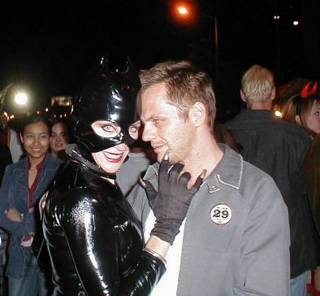
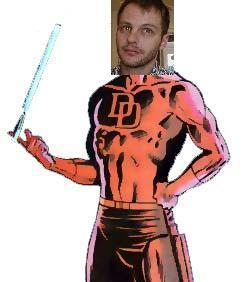



 A Is for Androids
A Is for Androids B Is for Boba
B Is for Boba C Is for Calvin
C Is for Calvin D Is for Dragons
D Is for Dragons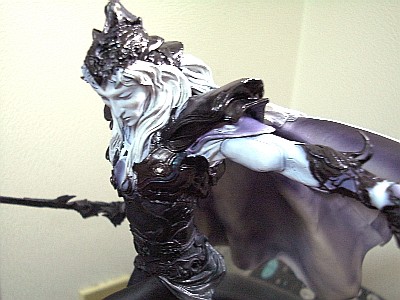 E Is for Elric
E Is for Elric F Is for Futures
F Is for Futures G Is for Genie
G Is for Genie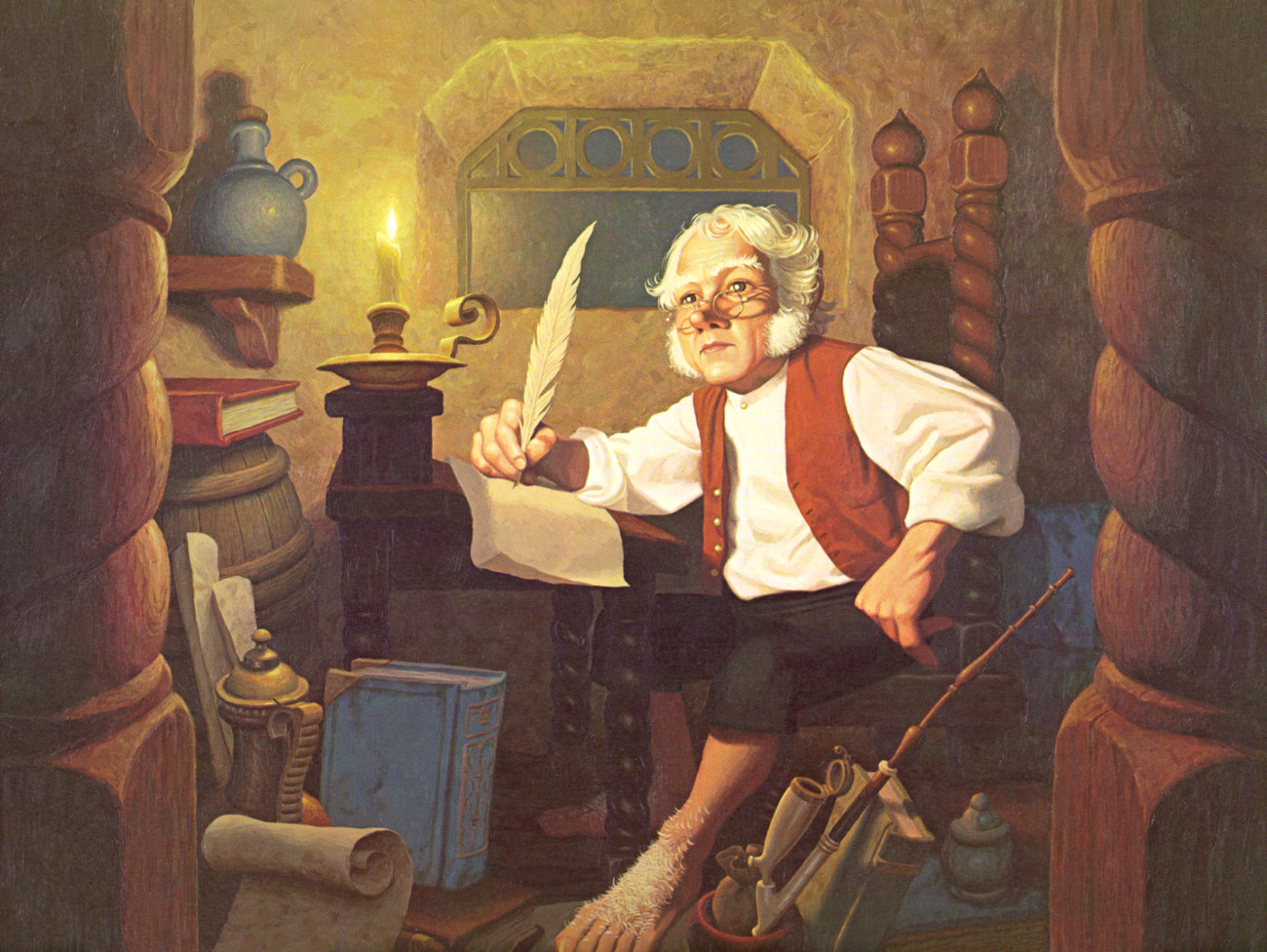 H Is for Hobbits
H Is for Hobbits I Is for Iceman
I Is for Iceman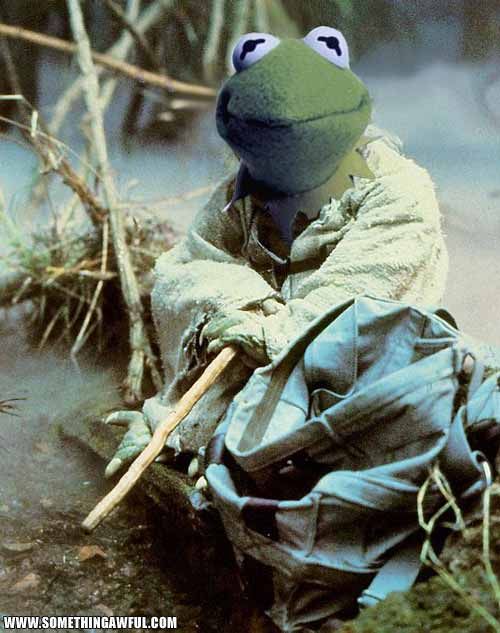 J Is for Jedi
J Is for Jedi K Is for Kraken
K Is for Kraken




















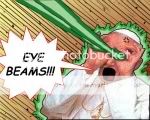
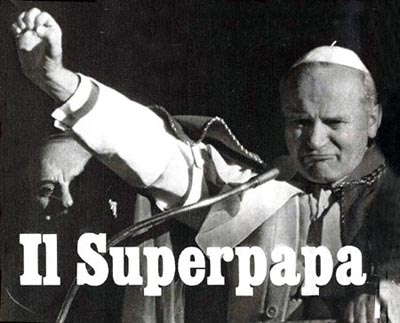


















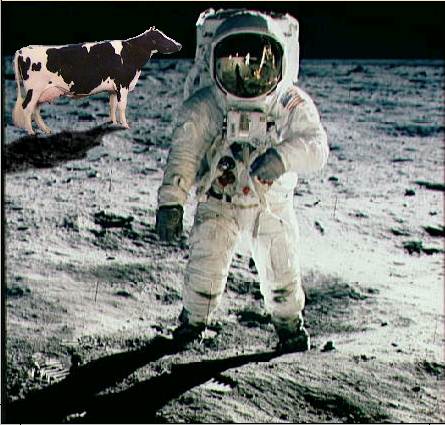
























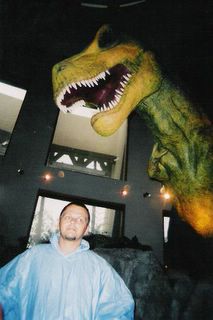



0 Comments:
Post a Comment
<< Home